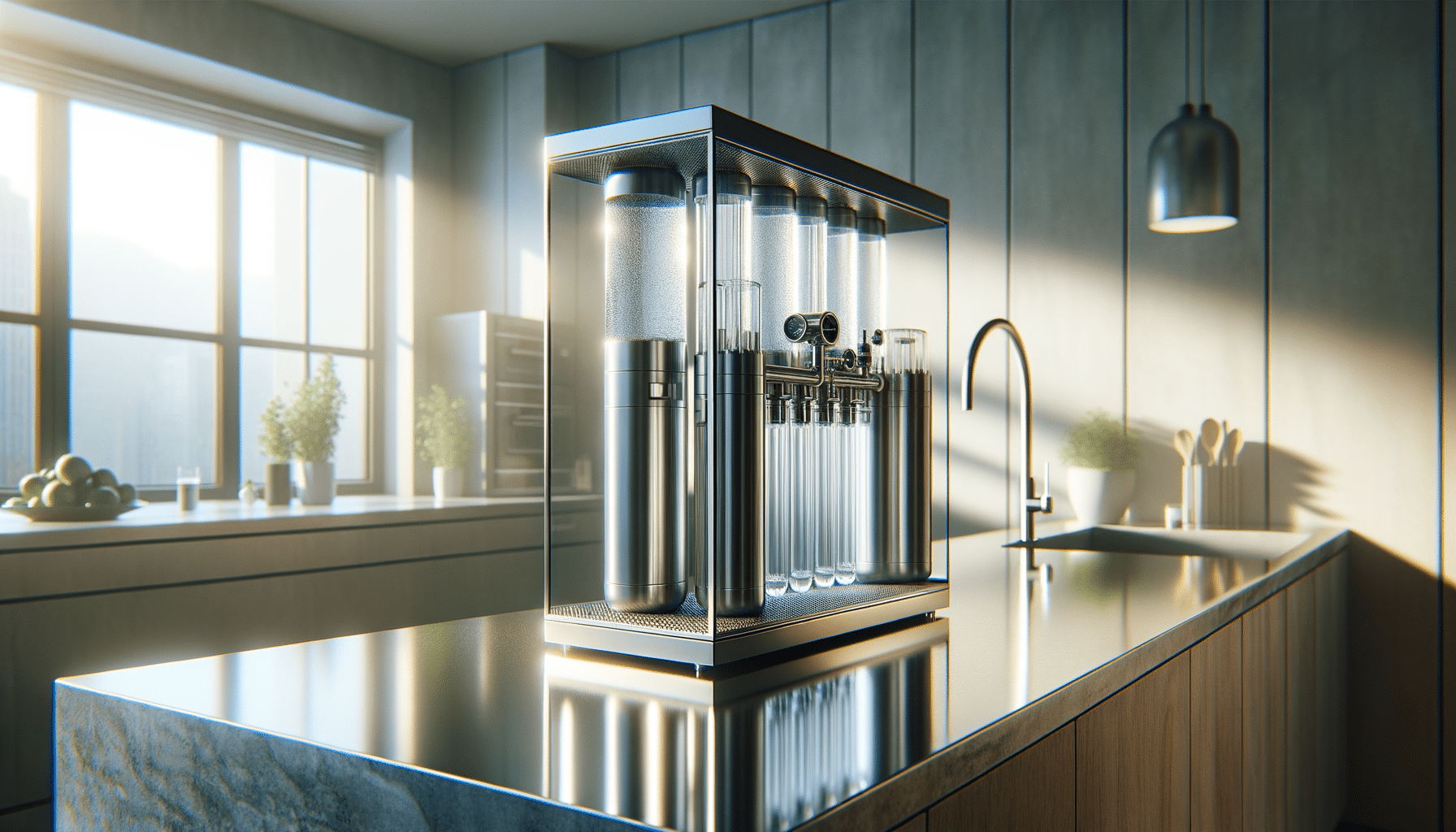
Learn more about Water Filtration
The Importance of Water Filtration
Water is an essential component of life, and access to clean, safe drinking water is crucial for health and well-being. However, with increasing pollution and industrialization, natural water sources are often contaminated with harmful substances. Water filtration offers a viable solution to remove impurities and ensure the provision of clean water. This process not only protects against waterborne diseases but also improves the taste and quality of water, making it suitable for consumption.
Water filtration systems are designed to remove a variety of contaminants, including bacteria, viruses, chemicals, and heavy metals. These systems utilize different methods such as carbon filtration, reverse osmosis, and UV treatment to achieve optimal results. The choice of filtration technique depends on the specific impurities present in the water source and the desired level of purification.
In addition to health benefits, water filtration is also environmentally friendly. By reducing the reliance on bottled water, filtration systems help decrease plastic waste and lower the carbon footprint associated with the production and transportation of bottled water. This makes water filtration a sustainable choice for both households and businesses.
Types of Water Filtration Systems
There are several types of water filtration systems available, each with its own set of advantages and applications. Understanding these systems can help consumers make informed decisions about which one best suits their needs.
One popular type is the carbon filter system, which uses activated carbon to adsorb impurities. This method is highly effective at removing chlorine, sediment, and volatile organic compounds (VOCs), improving water taste and odor. Carbon filters are commonly used in home water pitchers and faucet attachments.
Reverse osmosis is another widely used filtration technique. It employs a semi-permeable membrane to remove dissolved solids, heavy metals, and other contaminants. Reverse osmosis systems are known for producing high-quality water and are often installed under sinks for household use.
Ultraviolet (UV) filtration systems use UV light to disinfect water by inactivating bacteria and viruses. This method is particularly effective in treating microbiologically unsafe water, making it a valuable addition to other filtration processes.
Each of these systems has its pros and cons, and often, combining multiple filtration methods can provide comprehensive protection against a broad range of contaminants.
Benefits of Using Water Filtration
Implementing water filtration systems offers numerous benefits beyond simply providing safe drinking water. One significant advantage is the improvement in taste and odor. Many filtration systems effectively remove chlorine and other chemicals that can impart unpleasant flavors, resulting in water that is more enjoyable to drink.
Filtration systems also play a crucial role in protecting health. By removing harmful contaminants such as lead, mercury, and pesticides, these systems reduce the risk of waterborne illnesses and long-term health effects. This is particularly important for vulnerable populations, including children, the elderly, and individuals with compromised immune systems.
Moreover, water filtration can lead to financial savings. Although there is an initial investment in purchasing and installing a filtration system, the long-term savings from reduced reliance on bottled water can be substantial. Additionally, filtration systems require minimal maintenance, further adding to their cost-effectiveness.
Finally, using filtered water in household appliances, such as coffee makers and dishwashers, can extend their lifespan by preventing mineral buildup and corrosion. This not only protects appliances but also ensures they operate more efficiently.
Challenges and Considerations in Water Filtration
While water filtration systems offer numerous benefits, there are challenges and considerations to keep in mind. One common concern is the cost of installation and maintenance. Although filtration systems can lead to long-term savings, the upfront cost can be a barrier for some households. It’s important to weigh the initial investment against the potential health and environmental benefits.
Another consideration is the selection of an appropriate system. With various options available, choosing the right filtration method can be overwhelming. Factors such as water quality, specific contaminants, and household needs should be considered when selecting a system. Consulting with a water treatment professional can provide valuable guidance in making this decision.
Maintenance is another critical aspect of water filtration. Regular filter replacement is necessary to ensure the system continues to function effectively. Neglecting maintenance can lead to reduced performance and even recontamination of the water supply.
Finally, while filtration systems can remove many contaminants, they may not address all water quality issues. For instance, they may not remove certain dissolved gases or improve water hardness. Understanding the limitations of a chosen system is essential to set realistic expectations.
Looking Ahead: The Future of Water Filtration
As technology advances, the future of water filtration looks promising with innovations aimed at increasing efficiency and affordability. New materials and methods are being developed to enhance filtration performance, making clean water accessible to a broader population.
One area of research is the development of advanced membrane technologies that offer higher filtration rates and longer lifespans. These membranes are designed to be more resistant to fouling, reducing maintenance frequency and costs.
Another exciting development is the integration of smart technology into filtration systems. Smart systems can monitor water quality in real-time and provide users with alerts when maintenance is required. This not only ensures optimal performance but also enhances user convenience.
Furthermore, efforts are underway to make water filtration systems more sustainable. This includes using eco-friendly materials and designs that minimize energy consumption and waste production. As environmental concerns continue to grow, sustainable water filtration solutions will become increasingly important.
Overall, the future of water filtration holds great potential for improving global access to clean water, addressing both current challenges and future demands.


